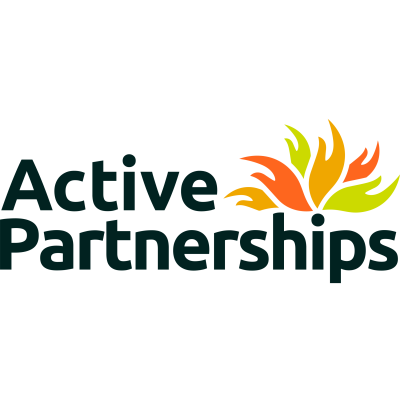Government guidelines which started positive messaging during the onset of the COVID crisis focused heavily on self-care, promoting physical activity and access to the outdoor environment to maintain our physical and mental health. This opportunity, became a right to be exercised and protected, helping so many manage the terrible step change to a loss of liberty and control. Exercise at the start of the crisis helped us cope mentally; without which we wouldn’t have coped. Exercise was the saviour of the Country; perhaps more so for young people.
During the summer, this focus shifted to keeping the economy moving and to enable livelihoods to be protected; we have been encouraged to “Eat out to help out”, keep shopping, go to work and support our local businesses. As we see the reduction of the furlough scheme this month, we are all expecting a further wave of redundancies to emerge as those protected roles become exposed to market forces and the second wave of COVID requires further working from home and restrictions to movement and socialisation.
We have to ask ourselves what will be the impact of this second wave on our working age population?
The evidence points to deconditioning; with reduced stamina and increased weight gain across the population, again disproportionately affecting young people. We also anticipate a further wave of poor mental health; again affecting young people and older people in work on low incomes.
We know that around a third of people, according to the COVID Symptom Study, have gained weight (typically a kilo). As we know even before the crisis, 1 in 5 people experienced a mental health issue at any one time (WHO); in a survey by the mental health charity Mind of more than 16,000 people during lockdown, the scale of the impact of the pandemic has seen two out of three (65 per cent) of adults over 25 and three-quarters (75 per cent) of young people aged 13-24 with an existing mental health problem reporting worse mental health.
So what has happened to the self-care message and what does this mean for our working age population as we head into the winter and a second wave of COVID?
We know that generally people experience poorer mental health during the winter months with higher levels of anxiety and more people reporting low mood. We also know from the Sport England Active Lives survey that levels of physical activity and engagement in sport reduce over the winter months with a switch from outdoor to indoor activity that may not be available this year.
Without the call to “Be Active” from national Government we have to consider alternative leadership partners and understand why they may wish to take on this responsibility as we stand on the edge of a deconditioning and long term sickness epidemic in our working age population. This is where we as Active Lancashire believe employers as leaders are uniquely placed to take on this role as guardians of their employees’ health and also the health viability of their businesses. There is no time like now when “Health is wealth” has been so true.
There is limited research into the impact of COVID on the productivity of the working age population, however parallel studies in older people can usefully indicate the likely impact. Muir Gray and William Bird in their June 2020 BMJ Article looking at the impact of COVID isolation on older people found,
“Spending months at reduced levels of activity will have an impact on all 4 aspects of physical fitness—strength, stamina, suppleness, and skill. It is important to appreciate also that there will be a loss of cognitive and emotional wellbeing as a result of isolation and loneliness, and this will increase the risk of dementia. For those who are already housebound, the impact of quarantine may not be so dramatic physically, but with even fewer visits there will be considerable cognitive and emotional impact.”
In his May 2020 NIHR article, Professor Greenhaff said:
“It is of genuine concern that physical inactivity and sedentary behaviours are likely to be common during the COVID-19 pandemic. For example, a two week transition period from a lifestyle without structured exercise training to inactivity causes effects such as insulin resistance and reduces muscle mass in healthy, young volunteers. Without a structured exercise regime, restoring metabolic function and muscle volume will take a lot longer, particularly in older people.”
Even short term inactivity has its impact and long term inactivity needs structured support to regain health and wellbeing.
This research points to key employee attributes which are critical to employee productivity and is highly valued by employers. In Lancashire, addressing poor health issues (pre COVID report) would increase the value (GVA) of Lancashire’s economy by £650M / year (Health for Wealth report, NHSA 2019). The NHSA have identified that between 30 – 50% of Lancashire productivity gap is a result of poor physical and mental health. In our COVID restricted world these figures will be substantially increased.
How can employers support their employees to remain fit and well during COVID?
Active Lancashire has been working with business, academic, health and leisure industry partners regionally and nationally to develop a partnership response which builds on best practice and facilitates strong local relationships between businesses and support partners.
These are our three proposed components which make up our Business Health Matters, workplace health and wellbeing programme:
Engagement: Active Lancashire are working in partnership with the Lancashire Enterprise Partnership (LEP), Healthier Lancashire and South Cumbria and Local Authorities to prioritise the health of working age people as a strategic priority. By working in partnership with organisations who work with businesses large and small, (Chambers of Commerce and BOOST) we aim to engage employers and seek their leadership and support to work with their employees to improve and maintain the health and wellbeing of their employees. Through this work we aim to sustain and improve business productivity, employee skills and capacity retention (particularly of older workers) and improve employee satisfaction.
Health checks: Working closely with the University of Central Lancashire (UCLAN) and the mental health charity, Mind, we have developed a physical and mental health profiling assessment tool which can be carried out by non-health professionals, who are certificated to undertake the role by UCLAN school of Medicine. We have worked closely with GP and NHS colleagues to ensure the information collected is secure and has the potential to be stored as part of the patient record. The Health check provides a personal benchmark of wellbeing and through reflective and motivational interview techniques identifies options for consideration to improve both health and lifestyle issues. Where the Health checks identify a serious undiagnosed issue they will be referred to primary care initially for further support.
Social Prescribing: We anticipate that around 80% of our “prescriptions” based on personal health checks will feature an active lifestyle offer; either through the workplace (facilitated by trained Workplace Champions who may facilitate opportunities such as walking meetings, couch to £5k virtual groups, workplace challenges etc), or by accessing opportunities provided by external bodies such as Parkrun, local gym and leisure provision or sporting clubs with suitable “return to” offers, with both virtual and face to face provision. In addition, we recognise that many people may require “prescriptions” to assist with lifestyle challenges such as debt, relationships and substance misuse which will need to be addressed before health improvement can be considered.
Evaluation: We aim to work with businesses and partners within the NHS and Local Economic Partnership to understand the social and economic value of getting people active. We will be using a detailed tracking and monitoring methodology to establish the impact of our proposed project working with our evaluation partner The University of Central Lancashire. We aim to develop the project and test our approach over the coming 3 years, producing a business case which we can share with other partners.
Next steps: Active Lancashire have been commissioned as one of the National Industrial Strategy Active Ageing trailblazer projects to develop this business case (Business Health Matters) by UK Research and Innovation. Stage one of the project will be complete by October 2020 and we see us submit a further proposal for development funding from a number of partners.
If you would like to know more about our Business Health Matters project please contact us at [email protected].
Adrian Leather
CEO
@ALActiveLancs




